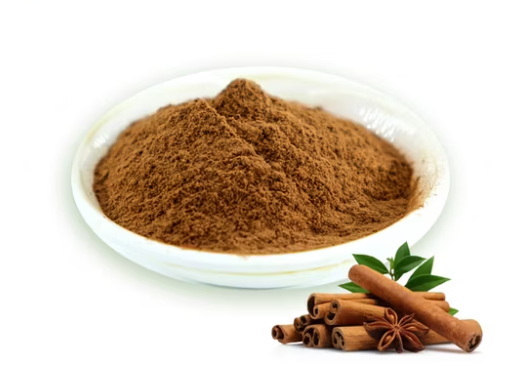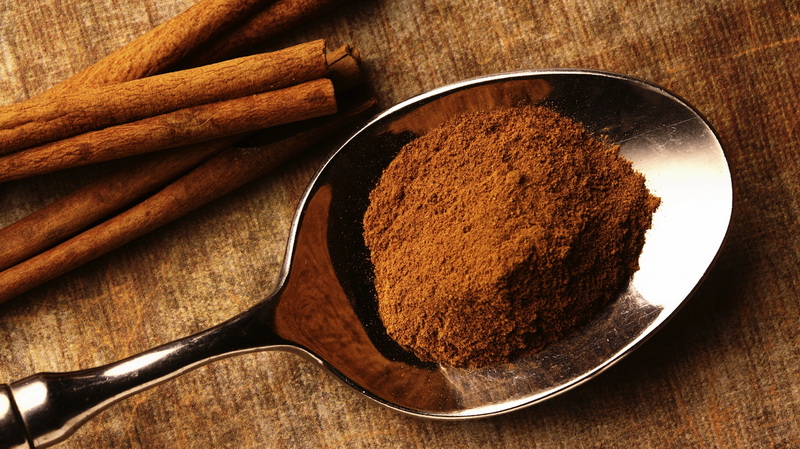Content Menu
● Introduction to Cinnamon and Diabetes
>> Cinnamon's Active Compounds
● Mechanisms of Action
● Clinical Evidence
● Safety Profile
● Potential as a Complementary Treatment
● Integration with Other Natural Therapies
● Future Research Directions
● Cultural and Historical Use of Cinnamon
● Nutritional Benefits of Cinnamon
● Potential Interactions with Medications
● Conclusion
● FAQs
>> 1. What are the active compounds in ODM Cinnamon Bark Extract?
>> 2. How does ODM Cinnamon Bark Extract improve insulin sensitivity?
>> 3. What are the potential side effects of consuming ODM Cinnamon Bark Extract?
>> 4. Can ODM Cinnamon Bark Extract be used as a standalone treatment for diabetes?
>> 5. What is the recommended dosage of ODM Cinnamon Bark Extract for blood sugar management?
● Citations:
Cinnamon, particularly its bark extract, has been widely studied for its potential benefits in managing blood sugar levels. ODM Cinnamon Bark Extract, derived from the bark of the cinnamon tree, is rich in bioactive compounds that may help improve insulin sensitivity and reduce blood glucose levels. This article explores the mechanisms by which ODM Cinnamon Bark Extract supports blood sugar management, its safety profile, and its potential as a complementary treatment for diabetes.

Introduction to Cinnamon and Diabetes
Cinnamon has been used for centuries in traditional medicine for its various health benefits, including its potential antidiabetic effects. The primary active compounds in cinnamon, such as cinnamaldehyde, proanthocyanidins, and catechins, are believed to enhance insulin sensitivity and glucose uptake in cells, thereby lowering blood sugar levels.
Cinnamon's Active Compounds
- Cinnamaldehyde: This is the most abundant compound in cinnamon oil and is responsible for its distinct flavor and aroma. It has been shown to have antioxidant and anti-inflammatory properties.
- Proanthocyanidins: These compounds are known for their antioxidant activity and may help improve insulin sensitivity.
- Catechins: Similar to those found in green tea, catechins in cinnamon may contribute to its metabolic benefits.
Mechanisms of Action
ODM Cinnamon Bark Extract may support blood sugar levels through several mechanisms:
1. Enhancing Insulin Sensitivity: Cinnamon extracts have been shown to increase the body's sensitivity to insulin, allowing glucose to enter cells more efficiently.
2. Slowing Carbohydrate Absorption: Cinnamon may slow the absorption of carbohydrates from the intestine, reducing the postprandial glucose spike.
3. Modulating Gut Microbiota: Cinnamon may influence the gut microbiome, promoting beneficial bacteria that aid in glucose metabolism.
4. Antioxidant Activity: The antioxidant properties of cinnamon can help reduce oxidative stress, which is often associated with diabetes complications.
5. Inflammation Reduction: Cinnamon's anti-inflammatory effects may also contribute to improved insulin function and glucose metabolism.
Clinical Evidence
Several clinical trials have investigated the effects of cinnamon on blood sugar management:
- Type 2 Diabetes: A study found that cinnamon supplementation improved glycemic indices, lipid profiles, and anthropometric parameters in patients with type 2 diabetes, particularly those with a higher baseline BMI.
- Prediabetes: Continuous glucose monitoring showed that cinnamon intake reduced blood glucose levels and glucose peaks compared to placebo.
- Glycemic Control: Another study demonstrated that cinnamon extract significantly lowered fasting blood glucose levels in diabetic patients.
Safety Profile
While cinnamon is generally considered safe, high doses may cause side effects due to its coumarin content, which can affect liver function in sensitive individuals. However, ODM Cinnamon Bark Extract is typically standardized to minimize coumarin levels.

Potential as a Complementary Treatment
Cinnamon bark extract may serve as a complementary therapy for diabetes management, particularly when combined with conventional treatments. Its potential benefits include:
- Reducing Medication Side Effects: By improving insulin sensitivity, cinnamon may help reduce the need for higher doses of diabetes medications.
- Enhancing Lifestyle Interventions: Cinnamon can support dietary and exercise interventions aimed at managing blood sugar levels.
- Improving Cardiovascular Health: Cinnamon's antioxidant and anti-inflammatory properties may also help mitigate cardiovascular risks associated with diabetes.
Integration with Other Natural Therapies
Combining ODM Cinnamon Bark Extract with other natural therapies may enhance its benefits:
- Berberine: Known for its glucose-lowering effects, berberine may synergize with cinnamon to improve insulin sensitivity.
- Chromium: This mineral can enhance the action of insulin and may complement cinnamon's effects on glucose metabolism.
- Ginseng: Certain types of ginseng have been shown to improve insulin sensitivity and may work well in combination with cinnamon.
Future Research Directions
Further studies are needed to fully understand the long-term effects of ODM Cinnamon Bark Extract on blood sugar management. Key areas for future research include:
- Optimal Dosage: Determining the most effective dosage range for different populations.
- Combination Therapies: Investigating synergistic effects with other natural compounds or conventional medications.
- Mechanistic Studies: Elucidating the precise molecular mechanisms by which cinnamon affects glucose metabolism.
Cultural and Historical Use of Cinnamon
Cinnamon has been a prized spice for centuries, used not only for its culinary value but also for its medicinal properties. In traditional Chinese medicine, cinnamon is used to warm the body and improve circulation. Similarly, in Ayurvedic medicine, cinnamon is valued for its ability to balance blood sugar levels.
Nutritional Benefits of Cinnamon
Beyond its antidiabetic effects, cinnamon offers several other health benefits:
- Antioxidant Activity: Cinnamon is rich in antioxidants, which help protect against oxidative stress and inflammation.
- Anti-Inflammatory Effects: Cinnamon's anti-inflammatory properties may help reduce the risk of chronic diseases such as heart disease and cancer.
- Digestive Health: Cinnamon has been traditionally used to aid digestion and relieve symptoms of irritable bowel syndrome.
Potential Interactions with Medications
While generally safe, cinnamon may interact with certain medications:
- Blood Thinners: High doses of cinnamon may enhance the effects of blood thinners, increasing the risk of bleeding.
- Diabetes Medications: Cinnamon may enhance the effects of diabetes medications, potentially leading to hypoglycemia if not monitored.
It is crucial to consult with a healthcare provider before adding cinnamon supplements to your regimen, especially if you are taking other medications.
Conclusion
ODM Cinnamon Bark Extract offers promising benefits for blood sugar management due to its bioactive compounds that enhance insulin sensitivity and modulate glucose metabolism. While it is not a replacement for conventional diabetes treatments, it may be a useful complementary therapy. Further research is needed to fully understand its effects and optimal dosing.

FAQs
1. What are the active compounds in ODM Cinnamon Bark Extract?
The primary active compounds in ODM Cinnamon Bark Extract include cinnamaldehyde, proanthocyanidins, and catechins, which contribute to its antidiabetic effects.
2. How does ODM Cinnamon Bark Extract improve insulin sensitivity?
ODM Cinnamon Bark Extract may enhance insulin sensitivity by increasing the body's response to insulin, allowing glucose to enter cells more efficiently.
3. What are the potential side effects of consuming ODM Cinnamon Bark Extract?
While generally safe, high doses of cinnamon may cause liver issues due to coumarin content. However, most commercial extracts are standardized to minimize coumarin levels.
4. Can ODM Cinnamon Bark Extract be used as a standalone treatment for diabetes?
No, ODM Cinnamon Bark Extract should not be used as a standalone treatment for diabetes. It is best used as a complementary therapy alongside conventional treatments.
5. What is the recommended dosage of ODM Cinnamon Bark Extract for blood sugar management?
The recommended dosage varies, but common studies use between 1 to 6 grams per day. It is important to consult with a healthcare provider before starting any supplement regimen.
Citations:
[1] https://pubmed.ncbi.nlm.nih.gov/29605574/
[2] https://www.frontiersin.org/journals/pharmacology/articles/10.3389/fphar.2021.790901/full
[3] https://pubmed.ncbi.nlm.nih.gov/16213119/
[4] https://www.medicalnewstoday.com/articles/can-a-daily-dose-of-cinnamon-help-lower-blood-sugar
[5] https://www.rxlist.com/supplements/cinnamon_bark.htm
[6] https://onlinelibrary.wiley.com/doi/10.1111/1753-0407.12342
[7] https://www.healthline.com/nutrition/cinnamon-and-diabetes
[8] https://www.mdpi.com/1999-4907/12/5/648
[9] https://www.frontiersin.org/journals/nutrition/articles/10.3389/fnut.2020.619782/full






























